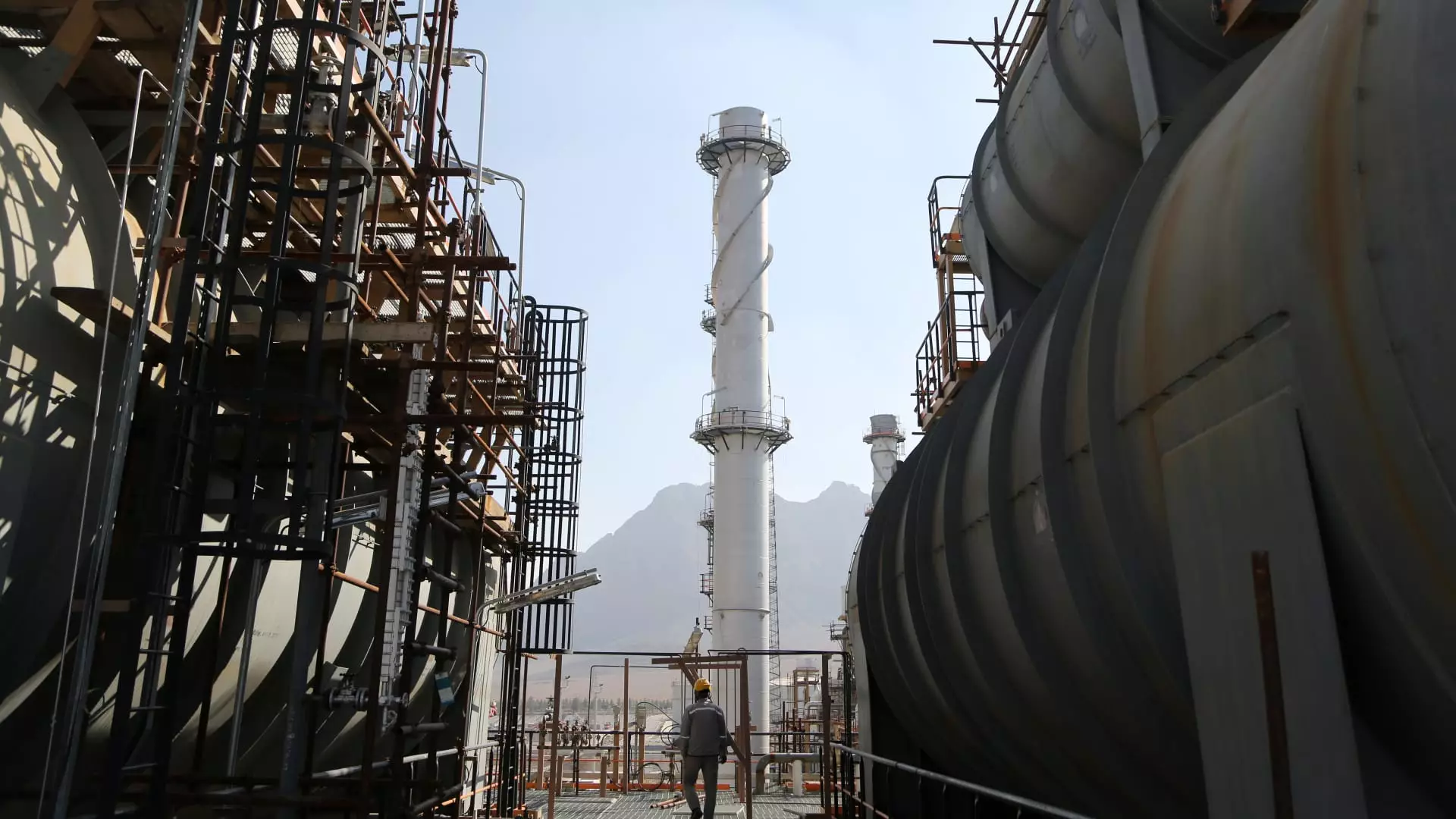The recent escalation of conflict in the Middle East, particularly the missile attack by Iran on Israel, presents a serious challenge to global crude oil supply and pricing. The geopolitical dynamics in this region have long been a source of uncertainty, but the latest developments signal that oil watchers must pay closer attention. The interplay between military actions and oil supply uncertainty has the potential to reshape energy markets, introducing volatility that could affect economies worldwide.
Iran’s missile launch, a reprisal for the deaths of Hezbollah leader Hassan Nasrallah and an Iranian commander in Lebanon, highlights a significant shift in the conflict landscape. In response to escalating military offensives, analysts are cautioning that Iranian oil infrastructure could soon become a focal point of Israeli counterattacks. This shift raises pressing concerns about oil supply disruptions, with industry experts noting that the risks are more pronounced now than in previous months. Saul Kavonic, a distinguished energy analyst, remarked that the threat to crude supply has moved from abstract speculation to a more tangible reality.
The implications of such an escalation can hardly be overstated. Historically, the oil market operates on finely balanced supply and demand, often sensitive to geopolitical events. When tensions escalate, the ripple effects can lead to sharp price fluctuations. Even though the initial missile strike saw most of the projectiles intercepted without any reported casualties in Israel, the psychological impact on traders and investors can be profound. With the stakes rising in the Middle East, all eyes are turning to crude oil, anticipating a possible sprint toward $100 per barrel.
In the wake of the missile strike, there was an immediate uptick in oil prices—an increase of over 5%—before retreating to a more modest rise of around 2%. As of now, Brent crude is trading at approximately $74.62 per barrel, while West Texas Intermediate futures are valued at $70.95. Analysts like Bob McNally have indicated that the ongoing conflict is entering a new phase that is more closely connected to energy markets, underlining how tightly linked military and economic dynamics can be.
While disruptions from the latest Israel-Hamas conflict had previously led to only limited impacts on the oil market, the current situation is markedly different. The compounded effects of an influx of U.S. oil production and waning Chinese demand have kept prices depressed. However, analysts warn that potential Iranian oil outages due to military engagement could trigger an upsurge in prices.
The Bigger Picture: Geopolitical Risk and Economic Implications
The Israel-Iran confrontation adds another layer to the complex tapestry of global oil geopolitics. Ross Schaap from GeoQuant has noted a startling spike in political risk scores as a response to the missile strikes. This data-driven analysis suggests that observers should brace for “much bigger events” on the horizon, placing further emphasis on the idea that the geopolitical landscape can shift dramatically, often with little warning.
Furthermore, the consequences of such an escalation are not confined to the Middle East. Should Iranian oil production take a significant hit, the repercussions would be felt across global markets. Josh Young from Bison Interests pointed out that such an incident could see oil prices crossing the $100 threshold, indicating the degree to which oil supply is intertwined with military tensions in the region.
As tensions remain high and the potential for further military action looms, the oil markets are caught in a precarious situation. The interplay between conflict and supply risk calls for greater vigilance from traders, policymakers, and consumers alike. With prices already showing signs of volatility, the world may be on the verge of a significant shift.
The Middle East’s tumultuous political landscape is not merely a backdrop but a crucial element that can influence global economic stability through its effect on oil prices. Should further military activities transpire, it could herald a new era of uncertainty and volatility, making it essential for stakeholders at all levels to prepare for the fallout. The intricate dance of geopolitics and economics continues, and the stakes could not be higher for the world’s reliance on oil.



Leave a Reply